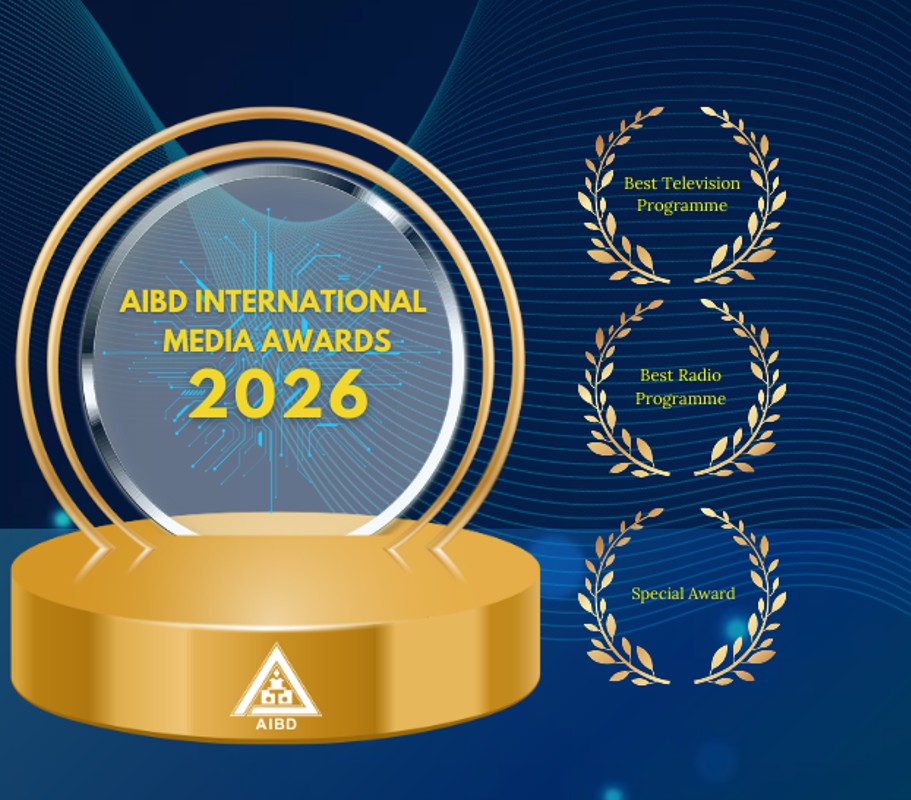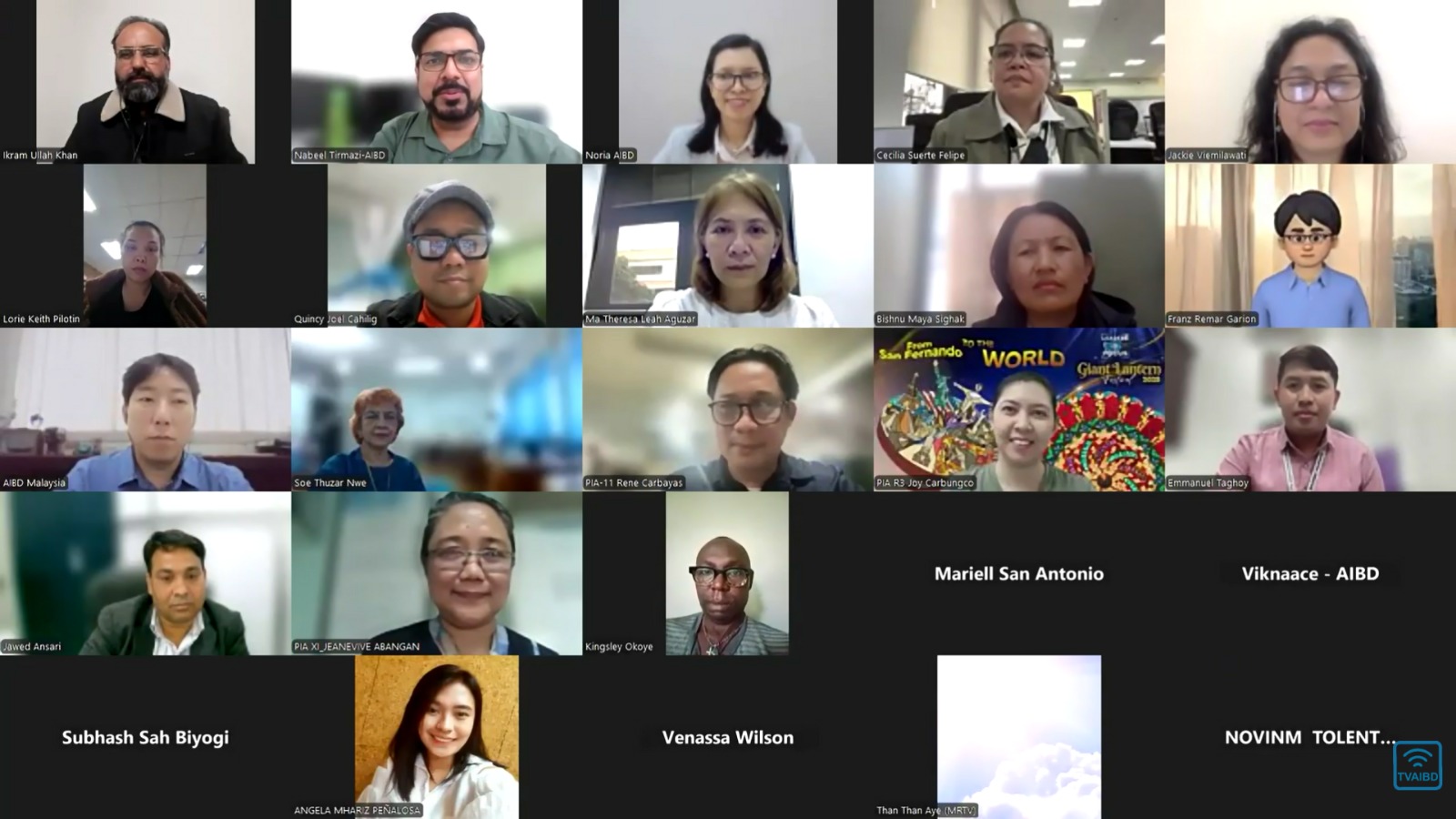
Inaugural Ceremony and Keynote Address
Written by Mr Rohan Beg
Edited by Ms Monica Phang
The first-ever virtual 17th Asia Media Summit (AMS) 2022 kicked-off with colourful beat and splendour by a traditional Fijian “Vou Dance Group” – Natadola to a captive audience across the Asia Pacific region and beyond, via zoom platform.
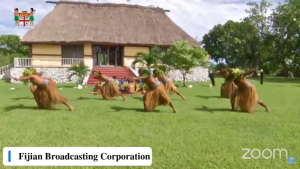
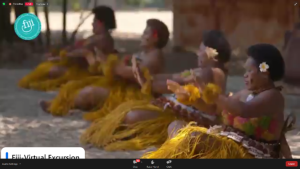
The 2-day event was organised by AIBD and co-hosted by the Government Republic of Fiji. It is a gathering of media industry leaders, data analysts, public officials and a variety of other experts to share a platform to create new, comprehensive solutions facing traditional broadcasting for the common good.
AMS featured inspiring words from AIBD Director, Ms Philomena Gnanapragasm, AIBD GC President, Mr. Mayank Agrawal, and the keynote address by the Prime Minister of the Republic of Fiji, Honorable Voreqe Bainimarama at the inaugural ceremony.
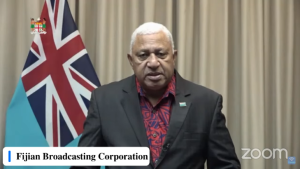
Honorable Voreqe Bainimarama expressed his view that COVID-19 pandemic has accelerated this digital migration. In 2022, it was reported that 4.62 billion people were social media users. Digital access is no longer considered a luxury, but a necessity. Especially in a pandemic where accessible information is always required.
This new digital landscape has been both a boon and a bane. It has allowed women and minorities to cast a spotlight on structural social, political and economic inequalities and apply pressure for reforms. It has also led to a widening of the public discourse on politics, economics and society in general.
At the same time, virality comes with a lack of responsibility. Conspiracy theories, medical misinformation and outright hate speech are proliferated by malicious actors and algorithms that make it difficult to discern fact from fiction. With severe consequences.
“The danger is that when we no longer know what to believe, people can end up dead. When we no longer know what to believe, and that democracies can be eroded. When we no longer know what to believe, wars can break out”, said the Prime Minister of Fiji.
AIBD GC President, Mr Mayank Agrawal in his welcoming address urged broadcasters must rise to the challenges of this new media ecosystem by formulating new strategies that can help create more reliable flows of information.
Traditional media is at a crossroads due to technological developments and the unstoppable growth of social media have changed how societies consume, distribute and perceive information, for better and worse.
Broadcasters, journalists, media practitioners and governments need to pool their resources and share critical knowledge on how to create a new framework for media communication that is both accessible, accurate and accountable.
Traditional media has a responsibility to re-think its mandate in this new world. It must figure out how to disseminate the right facts and tell the most humane stories to create more well-informed and emphatic communities.
“In the past, newspapers, radio and TV informed public opinion. Mainly one-way communication. Media set the agenda. However, advances in technology have placed the power of public discourse in the hands of the public”, said Mr Mayank Agrawal
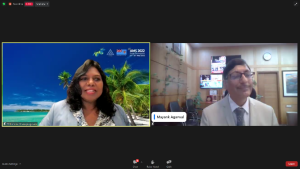
In her opening remarks, Ms Philomena Gnanapragasam, highlighted just how much the world had changed with the onset of the COVID-19 pandemic and the ensuing “infodemics” that accompanied it.
“The past two years have tested us. A small, invisible particle had brought everything in the world to a standstill and swept the world into uncertainty. Creating chaos in its wake; physical and mental. While COVID was playing havoc with our health, misinformation and miscommunication was sowing discord”, she said.
AIBD and our partners are proud to announce that in the pre-summit workshops, we have trained a record 290 media practitioners in the past two days.
In collaboration with the World Health Organization, International Labor Organization and International Telecommunication Union, we’ve held webinars on global road safety planning, women migrant journalism and cyber-security.
We hope to set an example of collaboration that other members in broadcasting and media, both in the public and private sectors, can emulate for future preparations.




